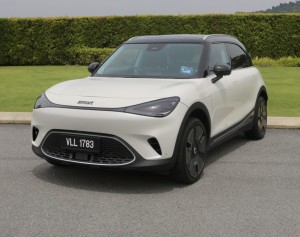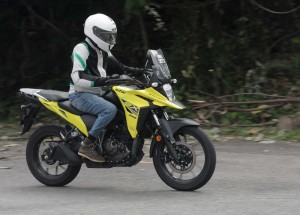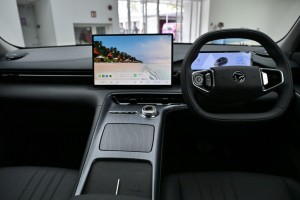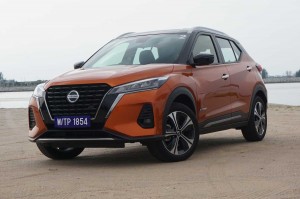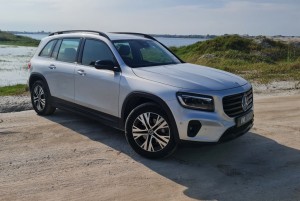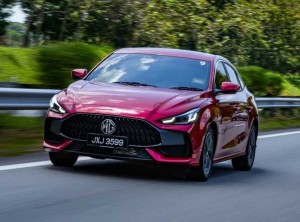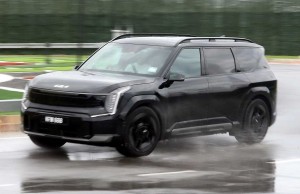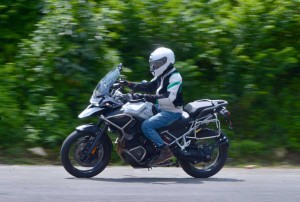BERLIN: Now is not a good time to own an electric car dealership. Regulatory uncertainty is confusing customers in many countries, holding back sales of electric vehicles (EVs).
For car manufacturers it seems the answer to this problem - and also the flood of new electric models from China - is to hark back to their legendary motoring heritage.
Automakers like Ford, Volkswagen and Renault are trying to inject some nostalgia into the market by re-activating famous names such as the Ford Capri, the cheeky Renault 5 and utilitarian R4 along with the VW camper van as modern battery electrics with retro cues.
The newcomers even come in fun colours like bright green and yellow and offer natty extras like a fabric sunroof, a feature that vanished from catalogues decades ago.
"We want to recreate the 1970s vibe for here and now," Ford design chief Amko Leenarts told the German motoring gazette Firmenauto.
The new electric cross-over Capri is a far cry from its sporty namesake introduced in 1969 as "the car you always promised yourself" - but no matter.

"The new model has nothing to do with its legendary ancestor - but the e-crossover is still a lot of fun", said Ford.
The technical basis of the Capri comes from Volkswagen and it shares a platform with the VW ID.4 yet the car has a character of its own and still drives like a Ford, say testers.
Experts doubt whether the battery-electric Capri will become the wheels of choice for many motorists, but automakers seem to believe a retro offensive is worth a try in a sluggish market.
Fiat is on the same track and the upcoming Grande Panda harks back to a name which first appeared on a Fiat in 1989. Conceived by Giorgetto Giugiaro, the original Panda was a basic runabout with flat metal bodywork and removable hammock-type seating.
The new one is based on Stellantis' smaller car platform, and retains a boxy and functional character too. It remains to be seen though whether it will be as popular as the first version.
Renault regards old cars re-imagined as electrics as a key part of its new sales strategy which is aimed at coping with the current upheaval in the industry.
"Our determination is to prepare the company for the future challenges and opportunities generated by the transformation of our industry," said chief executive Luca de Meo.
Renault aims to become an an all-electric brand and says the electrified Megane, Scenic and Kangoo were just the beginning. The big step towards the plug-in brand are new versions of the Renault 4 and 5, which will roll onto international markets in 2024/2025.
Choosing the R4 or R5 for an electric makeover seems like clever move, especially as both are likely to appeal to young people, many of whom shun buying a new car.
The electric five-seater will be produced at a plant in Douai, France and Arnaud Belloni, Renault's Global Chief Marketing Officer, has high hopes for it.
He described the born-again R5 supermini as marking "the rebirth or even the reinvention of a legend, undoubtedly one of the most iconic vehicles in the history of the French automotive industry."
The square front lights flanking a central Renault badge and the chunky look of the new EV are designed to evoke the signature Renault 5 charm that delighted fans back in the 1970s and 1980s.
The sporty styling is also a throwback to the chubby-cheeked R5 turbocharged version which was was one of the original pocket rocket hatchbacks.
It is likely to be a while before the new plug-in R5 enters showrooms. In the pipeline is another new entry-level electric model with a more affordable pricetag, currently bearing the internal name "Legend" and expected to consume just 10 kWh per 100 kilometres.

Amid so much enthusiasm, it is worth noting that Volkswagen has not yet seen big demand for the ID Buzz, the battery electric version of the combustion-driven camper van once beloved of hippies around the world.
Two years after after its market debut, ID Buzz sales in Germany are reportedly well below expectations, which might be due to the high purchase price and some changes in German tax rules for company cars.
Critics say the entry-level version of the ID Buzz is not a genuine family car either, and they claim the concept is too far removed from the cheap-and-cheerful image which made the original such a success.
And so the brand appears to be some way off its target of selling over 40,000 ID.Buzz vehicles by 2024. VW Commercial Vehicles sold 14,600 ID.Buzz vehicles in the first half of the year, the Frankfurter Allgemeine Zeitung newspaper reported.
"Buyers consider the vehicle to be extraordinarily successful, but the price is a disaster," the paper quoted a dealer as saying.
VW now hopes that upmarket versions with more equipment will revive sales in the United States

